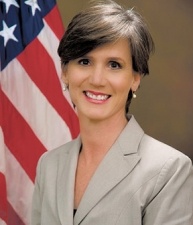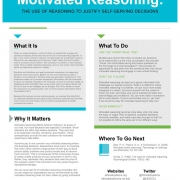Did You Get the Memo? Confronting Corporate Wrongdoing
 After the financial crisis of 2008 and the current, ongoing instances of large fines levied against banks and other financial companies, many people continually bemoan why penalties have not also included jail time and prosecution of executives who have behaved unethically. The message has finally reached the highest levels of government and change is on the horizon.
After the financial crisis of 2008 and the current, ongoing instances of large fines levied against banks and other financial companies, many people continually bemoan why penalties have not also included jail time and prosecution of executives who have behaved unethically. The message has finally reached the highest levels of government and change is on the horizon.
In a speech at NYU Law last week, hosted by the school’s Program on Corporate Compliance and Enforcement, Deputy Attorney General Sally Quillian Yates presented the memo covering a new Department of Justice initiative designed to fight corporate fraud and other misconduct by going after individuals who perpetrated the wrongdoing. In addition to punitive actions against an organization (what many see as a macro-level punishment that does little to deter misconduct on the micro, or personal, level), the DOJ will now turn its considerable resources to affecting change at the source, i.e. those that engage in personal malfeasance under the guise of doing their job.
Yates highlighted six key steps to strengthen their pursuit of individual corporate wrongdoing- some that were new and others that reflect best practices already employed by many federal prosecutors. The main provisions demand that firms cooperate more conspicuously than ever before. Further, firms that receive cooperation credit cannot hide behind the veneer of the corporation and must disclose all information about individuals involved in misconduct.
In other words, the “Yates Memo” puts executive leadership on high alert that they themselves will be more aggressively targeted and prosecuted if they are found to be acting unlawfully. Whether this will prove effective, or merely increase the obfuscation and shielding of executives, as we have seen in the past, is yet to be determined.
Research shows that leadership is perhaps the most important lever in creating and sustaining an ethical culture in organizations. The DOJ is right to look closer and devise strategies that will help nudge people to make better decisions. Her message to all United States attorneys shows that the commitment and desire is there- now both she and the public will see if corporations too have gotten the memo.
Watch a video of the talk, via NYU Law:









